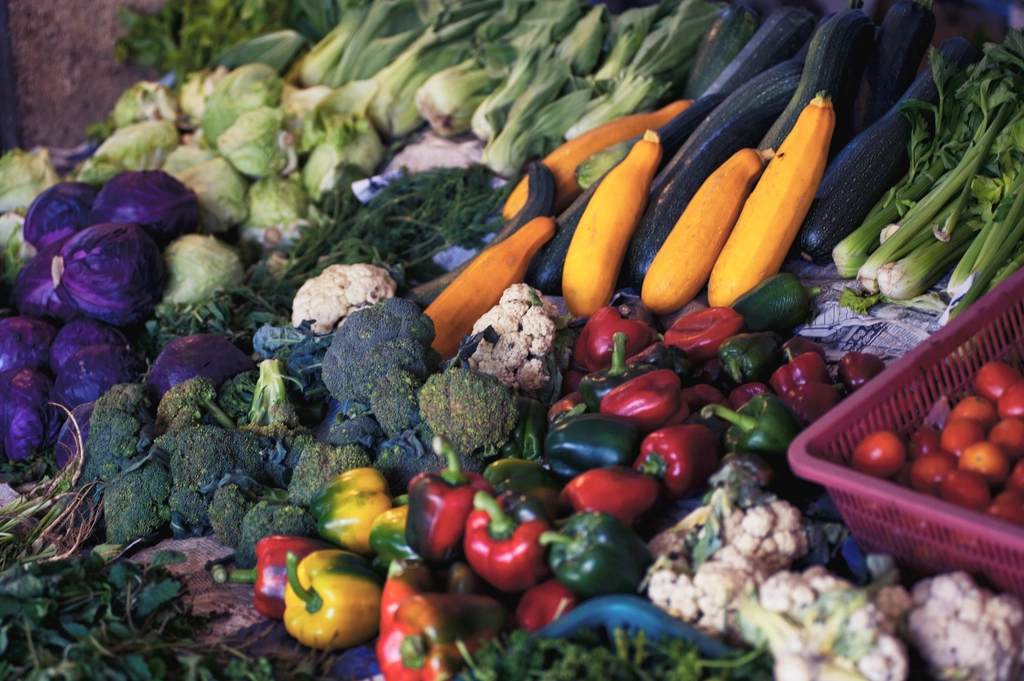Conveniently packed processed food are abundant but are they really going to affect us, and our family’s health?
They might and here’s why we should focus on getting our more of our calories from Whole Food, as little processed as possible.
We do most of our grocery shopping from the supermarket in our busy, daily lives.
The grocery aisles are filled with Ready-to-eat, processed foods that are marketed for its convenience.
While they are convenient and last longer than fresh produce, they often come at the cost of our health.
This is why we should focus on consuming more of our calories from whole food over-processed food(specifically ultra-processed food).
The Problem with Processed Food
You see, Processed food usually has fewer nutrients compared to Whole, less processed Food. They tend to have added sugar, which isn’t great for anyone’s health.
So why are they usually processed?
Well apparently when you strip those grains like wheat off their beneficial nutrients, the end products boast better mouthfeel, and have a much longer shelf life.
Here are some more problems with heavily Processed food:
Refined Carbs
Bread made from refined wheat flour and White rice are two examples of refined carbs. They are quickly turned into sugar upon consumption and give us a blood sugar spike.
Then our blood sugar level crashes quickly afterwards and will lead to further food cravings.
Added Sugars
Sugars are also added to these products to make them taste good.
Many of these processed foods are labelled “no preservatives” as the sugar added is already the preservative itself.
Adding sugar to refined carbs further exacerbates the blood sugar spike.
Artificial Additives
Artificial preservatives, colors, and flavorings are commonly used to improve a product’s shelf life, taste, and visual appeal.
While they’re safe in small amounts, excessive consumption of these additives may pose health risks and side effects in the long run.
The Benefits of Whole Foods
So what is the better alternative? Whole food, most of which are little processed as possible boast some benefits over heavily processed food.
Either in their natural form or minimally cleaned and frozen to extend shelf life, here’s some benefits with Whole food.
Nutrient-dense
Whole foods are abundant in vitamins, minerals, and fibers compared to the minerals which are added back into refined carbs.
And they tend to be free from preservatives too, which is another benefit.
Digestive health
Whole food when consumed provides our body with a sustained release of energy and is much slowly digested, this leads to slower raise in our blood sugar level.
Those additional fibers that aren’t removed act as prebiotic, which will improve our gut health.
Weight Management

Since there isn’t a quick crash afterwards you won’t be having food cravings all the time, consuming whole food will also help with weight control.
Eating this nutrient-dense, slower-digested whole food can help us eat fewer calories throughout the day.
Making the Switch
Now if you’re ready to make the switch to consume more whole food in your daily diet, here’s some tips to get you started.
Gradual Changes
It is always important to start small, and changes come gradually.
Adding one type of whole food to each of your daily meals can help counter the effect of refined carbs which are the fast, energy-releasing type.
You can then move on to switch out those refined carbs for wholemeal/wholegrain options to further improve you health.
Ideas for Incorporating Whole food
- Oatmeal – Instead of going for those instant oatmeal, switch to steel-cut oats or rolled oats.
- Eggs – Adding Caramelised Onions, spinach or some potatoes. Increasing the overall nutrient of the dish
- Rice – Instead of going for white rice all the time, switch to alternative carbs like Quinoa or Brown Rice. Which contains more nutrients compared to white rice.
- Yogurt – Opt for those made from whole milk, with no additional flavoring and no added sugar. Top with some berries and nuts for sweetness instead of lower sugar consumption
For more info on understanding more of why some foods can help with blood sugar control and sustained satiety, please check this Low GI food post.
Conclusion
If you’re concerned about health, starting with grocery shopping can be the first step you can take.
Stock up your pantry with more whole food, and less of all those processed products.
Slowly but surely you’ll eat better and the result is you will provide your body with nourishing food.
So if you want to boost your energy and improve your overall well-being, Whole food can be your answer!
Facts and Statistics
- Reduced risk of chronic diseases: Studies have linked diets rich in whole foods to a lower risk of heart disease, stroke, type 2 diabetes, and certain types of cancer.
- Better digestion: The fiber and nutrients in whole foods can support a healthy gut microbiome, improving digestion and overall gut health.
- Burn more energy to digest: Studies (Barr & Wright, 2010) conclude that our bodies have higher net energy gain(the body expends more energy to process Whole Food) from consuming processed food, which may contribute to weight gain.
- Enhanced nutrient intake: Whole foods are packed with essential vitamins, minerals, and antioxidants, which can help optimize your overall health.
References
- Barr, S. B., & Wright, J. C. (2010). Postprandial energy expenditure in whole-food and processed-food meals: implications for daily energy expenditure. Food & nutrition research, 54, 10.3402/fnr.v54i0.5144. https://doi.org/10.3402/fnr.v54i0.5144
- World Health Organization. (2024, March 1). Obesity and overweight. [Fact Sheet]. Retrieved from https://www.who.int/news-room/fact-sheets/detail/obesity-and-overweight. Retrieved September 23, 2024.
Discover more from Max Wholesome
Subscribe to get the latest posts sent to your email.








